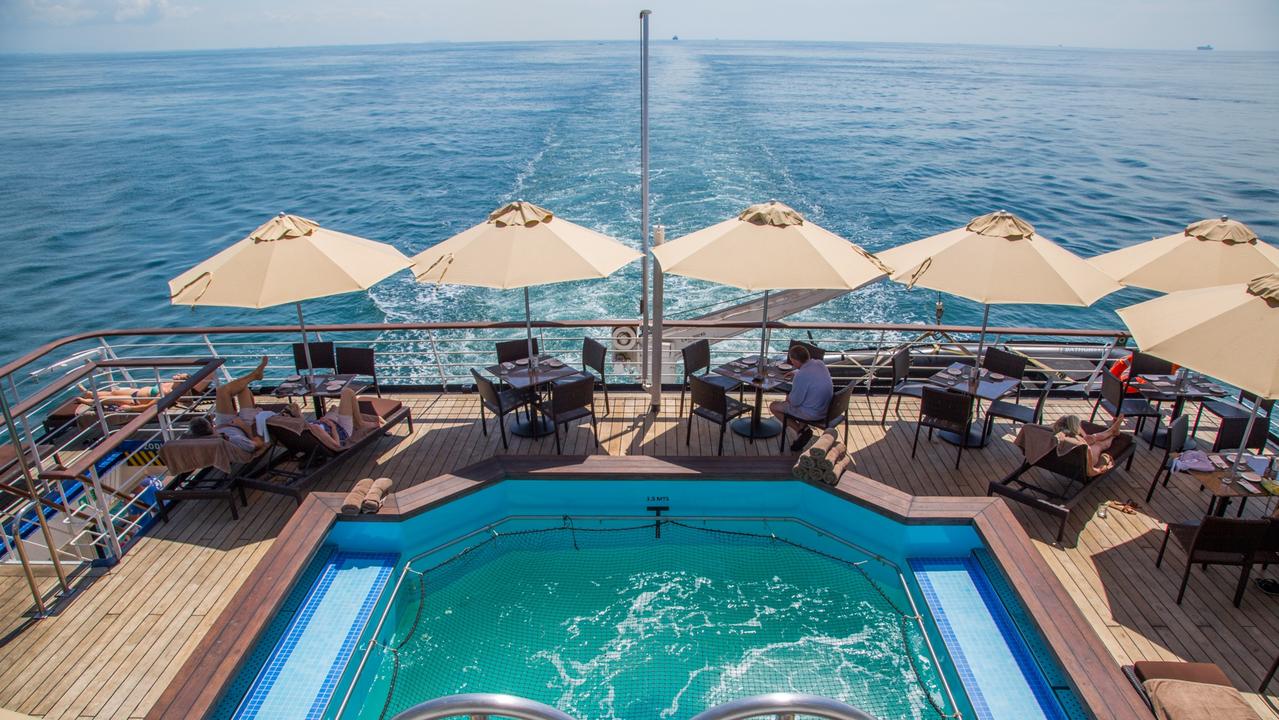How to get a better night’s sleep
From changing a routine, to taking a relaxing holiday, here’s how to break the poor sleep cycle.
The problem of sleeplessness is being targeted by health experts and service providers keen to ensure people are properly rested in order to perform at their best.
The normal benchmark for adults is around eight and a quarter hours per night, but a new survey by News Corp, in partnership with Princess Cruises has found that more than a third of Australian adults, 37 per cent, get less than seven hours sleep per night. Experts are worrying it is becoming a national issue.
Australia’s Sleep Health Foundation recently released a 100-page report on the problem, calling for, among other things, more research on primary sleep disorders, better prevention, early detection and diagnosis strategies, and cost-effective treatment options.
The foundation highlighted how poor health such as obesity and smoking is contributing to the problem, and how, in turn, poor sleep is exacerbating chronic illness. The dangers are premature death, disability, and serious accidents.
While there are three primary sleep disorders requiring the attention of a doctor — obstructive sleep apnoea, insomnia and restless legs syndrome — a much larger population struggles to get to sleep.
With so many tossing and turning every night, it is perhaps not surprising that there are a number of homemade remedies being trialled at any one time. Underlying health conditions may require longer term attention but everyone should take steps to ensure they get a better sleep wherever and whenever possible.
The survey found 56 per cent of people had tried to improve their sleep environment. Specially, 30 per cent had sought to block out light with curtains or eye shades, 20 per cent had adjusted the temperature of the room, 20 per cent had tried listening to relaxing music, 13 per cent had used aromatherapy products and nine per cent had block out sound using ear plugs.
The survey found 37 per cent had altered their pre-sleep routine, specifically engaging in a relaxing, routine activity before bedtime (23 per cent) or turning off or staying away from electronic devices before bedtime (22 per cent).
Other broad categories targeted by hopeful sleepers included doing exercise (25 per cent), getting medication assistance (25 per cent), and buying a new bed, mattress, linen or pillow (25 per cent).
American sleep expert Michael Breus, a clinical psychologist known as The Sleep Doctor, recommends people try to understand their own sleep needs as everyone will have different demands and requirements.
“Run this experiment: take your socially-determined wake up time (due to kids, school or work) and count backwards 7.5 hours),” Breus says.
“This takes into account that the average sleep cycle is 90 minutes and the average person has five of them. This becomes your new bedtime. So, if you get up at 6.30am, your bedtime is 11pm. Try going to bed at 11, for seven days, and see when you wake up. If, by the seventh day, you are waking up without an alarm at 6.30am, then you need 7.5 hours sleep, but if you wake at 5.30am, then you need 6.5 hours. Then you can adjust accordingly.”
For his part, Breus has a very consistent wakeup time (6.45am), does not drink caffeine after 2pm, exercises daily, and avoids alcohol within two hours before bed.
Winding down for bed, Breus says he “gets things off my plate so I can reduce my worry or anxiety,” does the usual hygiene things and then deliberately takes the time to relax for 20 minutes before sleep.
He suggests people focus on all senses in preparing for bed, reduce light or use biological lighting, mask sound or seek pro-sleep sounds such as ocean waves, touch a restful surface, smell aroma therapy if it helps and taste sleep-friendly foods at night (not stimulants).
The survey found 90 per cent of respondents agreed that taking a holiday was important both in terms of feeling refreshed and rejuvenated and improving overall wellbeing, especially women and those with mid-high household income. Yet a third of respondents had not taken a holiday of three or more nights away in the previous year.
Asked the best types of rejuvenation holidays, 61 per cent chose beach holidays, 44 per cent chose cruise holidays, 40 per cent chose spa holidays and 38 per cent chose food and wine holidays. Dr Breus has been working with Princess Cruises on a specialty sleep program on-board, including creating the Princess luxury bed.
This content was produced in association with Princess Cruises. Read our policy on commercial content here.


